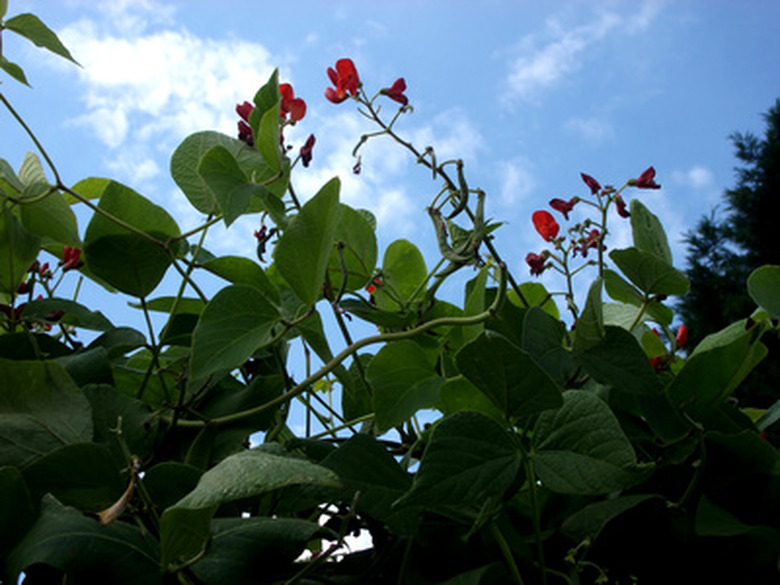Detergent Effect On Bean Plant Growth
Most bean plants require soil that has a balanced pH level–a 7.0, but no lower than 6.0. Some gardeners choose to save on the costs and use of clean water by reusing water that has been used for washing laundry. This grey water, as it is known, can be safe when correctly applied, although the slightest levels of toxic compounds may kill the garden's plants and lead to run-off.
Bean Plants
Bean plant is the common name for large plants of several genera within the family of Fabaceae. There are roughly two types of beans–bush bean plants that do not climb and pole beans that crawl up supports such as fences or a trellis. Bean plants require fast-draining soil and need to be watered frequently, allowing the water to drain between each watering. Over-watering bean plants can cause the growth of fungal disease or cause the plant's leaves and blossoms to drop.
- Most bean plants require soil that has a balanced pH level–a 7.0, but no lower than 6.0.
- Over-watering bean plants can cause the growth of fungal disease or cause the plant's leaves and blossoms to drop.
Grey Water
Grey water is the common name for recycled water that does not contain sewage. This water is used to irrigate the household garden while reducing the amount of water the home consumes. Cleaning products typically found within grey water are toxic to plant health and contain corrosive chemicals that will alter the soil's pH levels, making it difficult for future plants to take in the nutrients needed from the soil. Some gardeners use rain water to clean the soil after grey water is applied to fight against the buildup of salts.
Organic Detergents
Gardeners should only use grey water that is free of toxins. Selecting organic products that are plant derived will help keep the family and plants safe for toxicity. Avoid any products that contain any form of bleach, chlorine, artificial whiteners or what are known as brighteners.
- Grey water is the common name for recycled water that does not contain sewage.
- Gardeners should only use grey water that is free of toxins.
Application
Applying grey water to the soil of a plant in any large capacity will most likely poison the bean plant and destroy the soil. The water can run off into local waterways and damage sensitive local environments and habitats. It is best to mix clean water with grey water to dilute its effects while still saving water. Apply only one part grey water for every two parts clean water to your garden.
Warnings
Detergents are not meant for absorption by plants. They are full of powerful toxins that are meant to corrode organic materials. When absorbed by the plant, it can make it difficult for beans and their fruits to reach maturity and they can retain toxicity after harvest. Look for any signs of poisoning within your plants, such as browning leaves, immature fruits and undeveloped plants, immediately stopping grey-water treatments at the first sign to see if it improves the plant's condition.
- Applying grey water to the soil of a plant in any large capacity will most likely poison the bean plant and destroy the soil.
- When absorbed by the plant, it can make it difficult for beans and their fruits to reach maturity and they can retain toxicity after harvest.
References
- "Effect of Powdered and Liquid Laundry Detergent on Bean"; University of KwaZulu-Natal, South Africa; 2008
- Harvesting Grain Water: Grey Water
- University of Illinois: Extension: Watch Your Garden Grow: Beans
